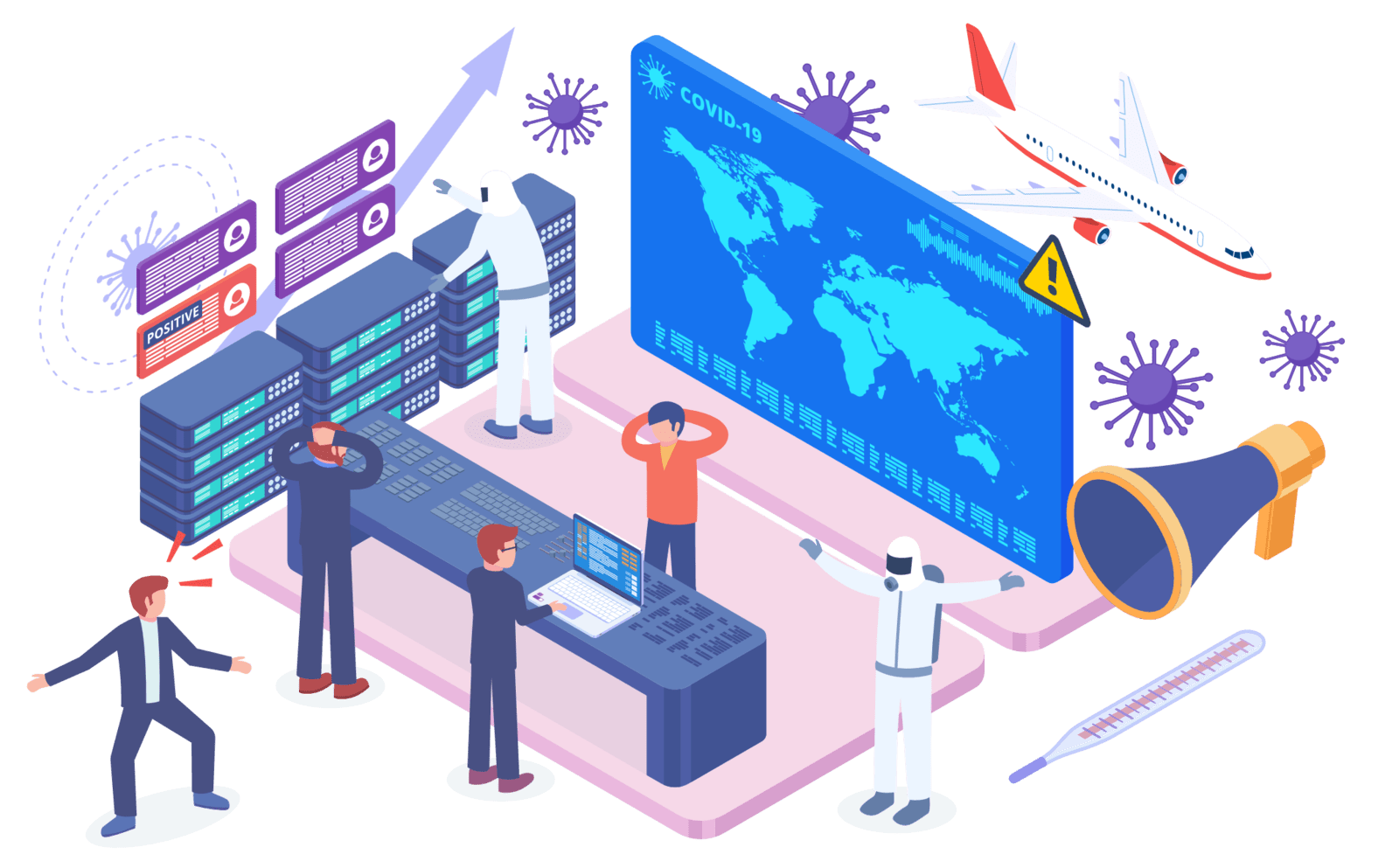
Why Invest in Adaptive Operations Strategy
Why Invest in Adaptive Operations Strategy
The world we live in is full of uncertainties. Among the critical skills of running a successful organization is to come up with an adaptive strategy. With a sound plan, you are sure that your business will make it through the hardest times. While planning for the unseen or unknown may sound like an oxymoron, it is the most efficient way to ensure that you have a way out when the traditional contingency plans no longer seem fit. Some of the unpredictable occurrences include climatic changes, consumer trends, economic crises, and the current COVID-19 crisis. In business, unforeseen circumstances are inevitable and unexpected, no matter how much you would like to deny the fact. The least business owners can do is ensure that their organizations prepare to approach the unknown and adapt to a forced hand. The adaptive operations strategy helps you avoid steering your business towards a direction that leads to an unsustainable future. This article will take you through some of the key reasons you should invest in an adaptive operation strategy.
Business Agility and Resilience
Business Agility and Resilience
In an era where business models are constantly disrupted, primarily due to the high rate of technological advancements, the chances are that you have come across the terms “agility” and “resilience” more than once. Business agility and resilience are the company’s ability to adapt to new market changes with the necessary speed. As earlier mentioned, many unseen market changes emanate from consumer preferences, climate, and economic factors. All these elements disrupt and alter the way you carry out your business operations, so you must adapt appropriately to meet new demands.
One of the established companies that have shown a high agility level is Amazon. This company has been running for decades, and nothing seems to bring it down even in the hardest of crises. Amazon was originally an online bookstore but has successfully transformed into one of the biggest online shopping platforms due to their willingness to make adjustments where needed.
To improve customer experience, their logistics experts came up with a way to enhance flexibility and delivery speed. Consequently, the business transformed into a supply chain company. The company’s agility has led to an unmatched competitive advantage due to increased responsiveness to changes in market conditions and technology. Business resilience and agility require a company to move fast and maintaining stability in the face of a crisis. A swift response to crises a requirement for any business that wants to overcome its unplanned operational challenges, and that’s where adaptive operations strategies come in to save the day. You should seek strategy consulting experts’ assistance to help you develop a plan that meets your needs today and in the future.
Lessons From the Pandemic
Lessons From the Pandemic
As much as you try, you cannot escape from the global crisis that COVID-19 has brought along. The pandemic has disrupted the normal global business order. Millions of individuals have lost their jobs as businesses are forced to close or operate remotely to curb the virus’s spread.
In business circles, implementing the right adaptive business operations in response to the crisis will have significant, long-lasting effects. The actions you take as a business leader will have a long-term impact and determine if your company will weather the storm or shut down. The unforeseen crisis forces businesses to adapt by coming up with new business solutions to suit the new reality. Despite the negative things associated with COVID-19, the pandemic has enlightened business owners on coping with unforeseen changes. So, what are the essential lessons from the pandemic?

Act Fast
Act Fast
One of the crucial lessons from the pandemic is that you cannot be too sure about tomorrow. Things might be running smooth, but come tomorrow, everything can turn upside down. Imagine a business that depends on people’s appointments to thrive. Suddenly, there is a lockdown in place to arrest a particular situation, meaning that people cannot leave their houses for appointments. Without an adaptive strategy, the business will most definitely fail due to a lack of running capital.
An example of an industry that depended on appointments and had to change its operating model is healthcare. People did not stop falling sick and needing healthcare amid the pandemic. Most healthcare providers shifted to telemedicine to ensure that their patients are served remotely. Initially, telemedicine was unheard of among the greater population, but with the onset of the crisis, the sector quickly adapted to remain above water. The fast shift from traditional medicine to telemedicine was a demanding process. Healthcare providers had to create websites and add virtual functionality before going live. This means that the business owners had to do a lot of work and invest significant resources to actualize the novel telemedicine idea. Surprisingly enough, those businesses that acted fast succeeded within a very short time.
Creative Marketing
Creative Marketing
Brick and mortar companies have shifted to e-commerce, but that alone is not enough to keep them going. You have to spread the word and be creative in how you do it. If you silently go the digital way, your effort is for naught. This is why it is crucial to come up with strategies to get the word out. You cannot go wrong with social media campaigns, especially at a time when nearly everyone is spending their time indoors and glued to their phone. Come up with a unique but relatable campaign to let your audience know that you care about them amid the crisis.
For instance, if you are a makeup company, come up with a campaign to remind your customers that they can still look and feel good regardless of the tough times. Let them know that you can have the products delivered right at their doorstep and that you are following all the precautions to ensure that your products are free from the virus. You should not stick to the old ways of doing things. Come up with fresh approaches to meet your audience’s needs. The key is adaptation. In fact, most companies that adopted the adaptive measures reported a higher profit margin than the years before. All it takes is creativity and uniqueness.

Change the Way You Offer Services
Change the Way You Offer Services
Adapting to the new normal after the pandemic demands that you change the way you offer your services. It’s not all about your business. You have to think about society and how a slight mistake can affect them. Everyone is in fear of contracting the virus, and it is up to you to step up and show them that you have things under control. The last thing you want is a bad review from someone who got the virus after using your products or services. As much as you want to make sales, put your customers’ safety first. For instance, if you run a restaurant or fast food joint, you must observe the social distance and no-contact rule. This is where you turn to home delivery services to avoid overcrowding and neutralize health risks.
Complex Adaptive Systems
Complex Adaptive Systems
Complex adaptive systems comprise numerous processes designed to adapt to changes over time. This means that their organized behaviors come to play following simultaneous interactions of parts without specific plans. Some of the characteristics of adaptive systems include decentralization, adaptation, and dynamic change. Businesses are complex adaptive systems. This means that you must understand the whole system to understand your business and operate all its parts. Keep in mind that organizations are made of networks of people, and there is no specific direction of interactions. A slight change to the system will impact the whole system.
Ensure that your business has clear goals and purposes. Every group in the organization should have its goals, all derived from the primary business purpose. The groups should organize themselves to reach a common goal and seek assistance if they cannot achieve the goals on their own. Also, the groups should comprise individuals with different expertise to help in achieving the groups’ purpose.
When running your organization, you must pay attention to feedback. This will help you determine if you’re on the right track and make changes where needed. Feedback is crucial mainly in times that call for change. By having goals and purpose, your team can come together to discuss the effective changes required to help you keep moving even in times of crisis.

Flexible Business Foundation
Flexible Business Foundation
A flexible foundation means that you can quickly make changes to accommodate your needs at a specific time. When you adopt a flexible model, you can accommodate the employees’ and customers’ needs without disrupting your business’s normalcy. The goal is to create a healthy work environment, which is only achievable if you’re willing to make adjustments to see your workers happy. Necessary adaptive measures motivate employees to become more productive, which is all you need for a successful organization. Moreover, flexibility attracts cost-effectiveness and efficiency. Take an instance of the COVID-19 crisis. Businesses suffered unparalleled blows from the crisis. However, with a flexible foundation, it is easier to adapt to the work-from-home strategy and ensure that everything keeps going as usual without necessarily showing up at the office.
A flexible business foundation enables businesses to be sustainable and helps them to adapt to change with ease. Such a foundation also creates a path to equality, improves productivity, and promotes effective performance development. It’s also the best way to increase customer satisfaction through the improved engagement of your teams. Your teams will also have an easier time responding to customer needs.
Adopting a fixed business model may seem like the best way to go about things, but it will most likely become a burden when facing inevitable changes. You should always be prepared to face whatever comes your way through efficient strategies without harming your operations.
Business Continuity
Business Continuity
It would be best if you had a business continuity plan that guarantees business resilience in the event of unforeseen disruptions. A continuity plan aims to facilitate a company’s fast recovery and ensure its functionality during and after a crisis. The continuity plan entails risk management procedures to prevent interruptions during a disaster and reestablish its full functionality as soon as possible. When coming up with a business continuity plan, you should think of all possible, unpredictable events. These could be floods, earthquakes, fire outbreaks, diseases, cyber-attacks, and other threats that will adversely affect your business.

